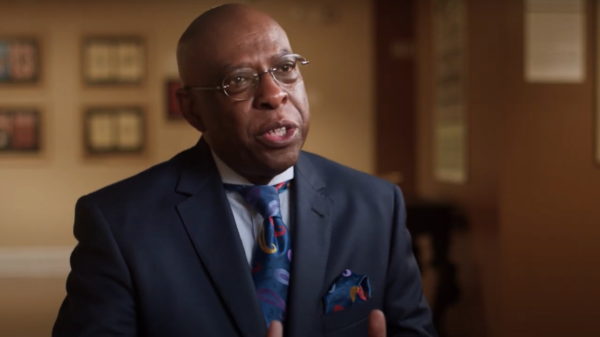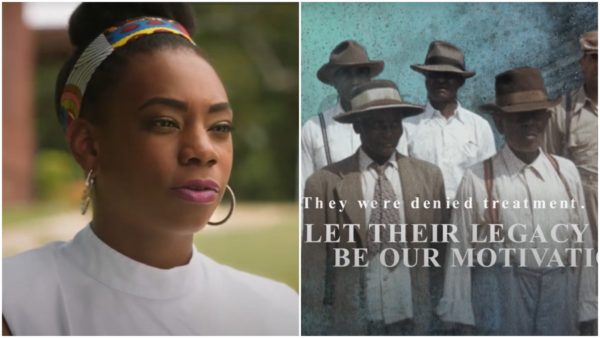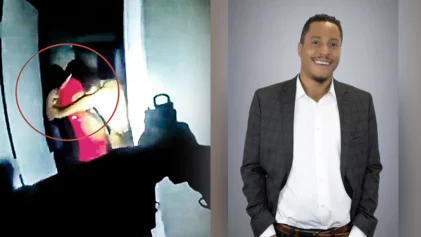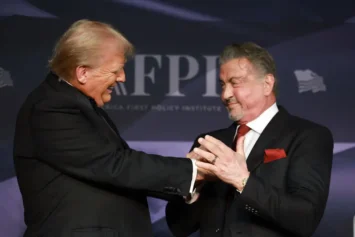About a half-dozen relatives of subjects of the infamous Tuskegee syphilis experiment are taking part in an ad campaign targeting Black Americans who are hesitant about receiving the COVID-19 vaccine.
“I want to save lives,” said Omar Neal, the nephew of Freddie Lee Tyson, one of several hundred men who were involved in the study without their informed consent.

The 1932 study, conducted by the U.S. Public Health Service in Macon County, Alabama, on the campus of the HBCU that is now known as Tuskegee University, was originally called the “Tuskegee Study of Untreated Syphilis in the Negro Male” and involved 600 Black men, including 399 with syphilis. The men were told they were being treated for “bad blood” and received free medical exams, free meals, and burial insurance in exchange for their participation.
By 1943, penicillin, an effective treatment for syphilis, was widely available. However, it wasn’t until 1972 that the Assistant Secretary for Health and Scientific Affairs announced the end of the study after it was exposed in the press, and 1973 when the USPHS was ordered to provide all necessary medical care for the survivors of the study. At least 100 men died due to untreated syphilis, while others went blind or insane in the advanced stages of the illness. In addition, 40 of their wives contracted the disease, and 19 children developed congenital syphilis.
The unethical experiment deepened mistrust between the Black community and American health science.
The handful of 60-second ads, released on June 30, include relatives of subjects of the study and are a part of the Ad Council’s multi-million-dollar campaign to encourage more Americans to get vaccinated against COVID-19. Deborah Riley Draper, an award-winning documentarian, was recruited to direct the ads, which will appear on television, and can be found on the Ad Council’s YouTube channel.
According to CDC data from June 28, among those who have at least one vaccination shot and whose ethnicity is known, 9 percent of those vaccinated are Black, and 60 percent are white. Politico reported last month that by June 7 more than 75 percent of Black Americans had not received a COVID-19 vaccine.
According to the Kaiser Family Foundation, 22 percent of Black Americans remain on the fence about getting vaccinated.
“When we don’t take the vaccine, we’re kind of doing to ourselves what the government did to those men at Tuskegee,” Neal, a former Tuskegee mayor, told The Associated Press.
The ad also features Elise Marie Tolbert, whose great-grandfathers were involved in the study. “I am a fierce advocate for equitable treatment for all. The ways in which COVID-19 ravaged Black communities showed that we have underlying vulnerabilities when something like a pandemic hits,” Tolbert says in the ad.

Kelli Richardson Lawson, founder and CEO of creative agency Joy Collective, which helped develop the campaign alongside the Ad Council and COVID Collaborative, said distrust has been a major factor in uncertainty about the vaccine. “In the process of creating multiple campaign elements, what we have heard over and over in the Black community was an overwhelming amount of distrust,” she told Ad Age.
“You hear, ‘I’m not messing around with the government,’ ‘I don’t trust the government,’” she continued, adding that many of the Black people she’s met who have been unsure about the vaccine, have cited Tuskegee as a major factor in their reasoning.
Ernest Hendon, the last survivor of the experiment died in 2004 at the age of 96.


